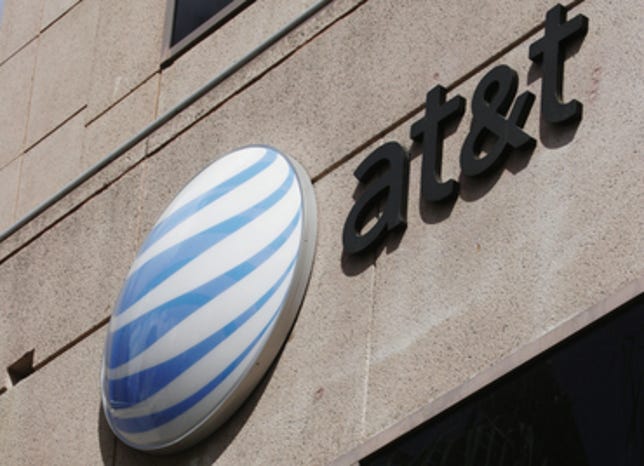AT&T has joined cable industry and wireless industry lobbyists in suing the Federal Communications Commission’s over new Net neutrality rules.

AT&T
AT&T’s lawsuit takes aim at rules the FCC adopted in February and officially published in the federal government’s Federal Register, or journal of regulation, on Monday.
The rules forbid broadband providers from blocking or slowing online services or applications. They also prevent Internet service providers from creating so-called fast lanes that would force content companies like Netflix to pay an additional fee to deliver their content faster to customers. The rules are expected to go into effect June 12.
AT&T becomes the latest to sue the FCC on Tuesday. Earlier in the day the CTIA mobile trade group, as well as the National Cable and Telecommunications Association and the American Cable Association cable lobby organizations filed their own separate lawsuits against the FCC. They joined telecom industry trade group USTelecom and a small Texas-based Internet service provider, Alamo Broadband, which filed their suits in March.
In its petition filed to the DC Circuit Court of Appeals, AT&T described the FCC’s legal foundation as “arbitrary” and “capricious.” It also contended that the FCC has violated the US Constitution as well as the federal Communications Act of 1934.
The common complaint shared across all the suits centers on the FCC’s reclassifying broadband service as a utility under Title II of the Communications Act of 1934. Such a move, the plaintiffs say, could give the FCC authority to set rates and impose tariffs. It also curbs their ability to compete, they say, making it less attractive for them to spend millions of dollars to build new networks and improve existing ones.
AT&T, like the CTIA, is also challenging the FCC’s decision to include wireless Internet services under the new regulation. Previous rules applied stricter regulations to wired broadband networks than to wireless services. The new Net neutrality regulations would apply equally to wireless and wireline services.
The FCC said earlier in a statement that it believes the rules will stand up to any legal challenges.
“As Chairman [Tom] Wheeler has said, we are confident the FCC’s new Open Internet rules will be upheld by the courts, ensuring enforceable protections for consumers and innovators online,” said Kim Hart, an FCC spokeswoman.
The flurry of lawsuits comes the day after the new rules were published in the Federal Register. Parties who oppose the new rules will now have 60 days to file an appeal with the courts. The Court of Appeals may ask those parties filing suit to combine their cases. But for now each case has been filed separately.




